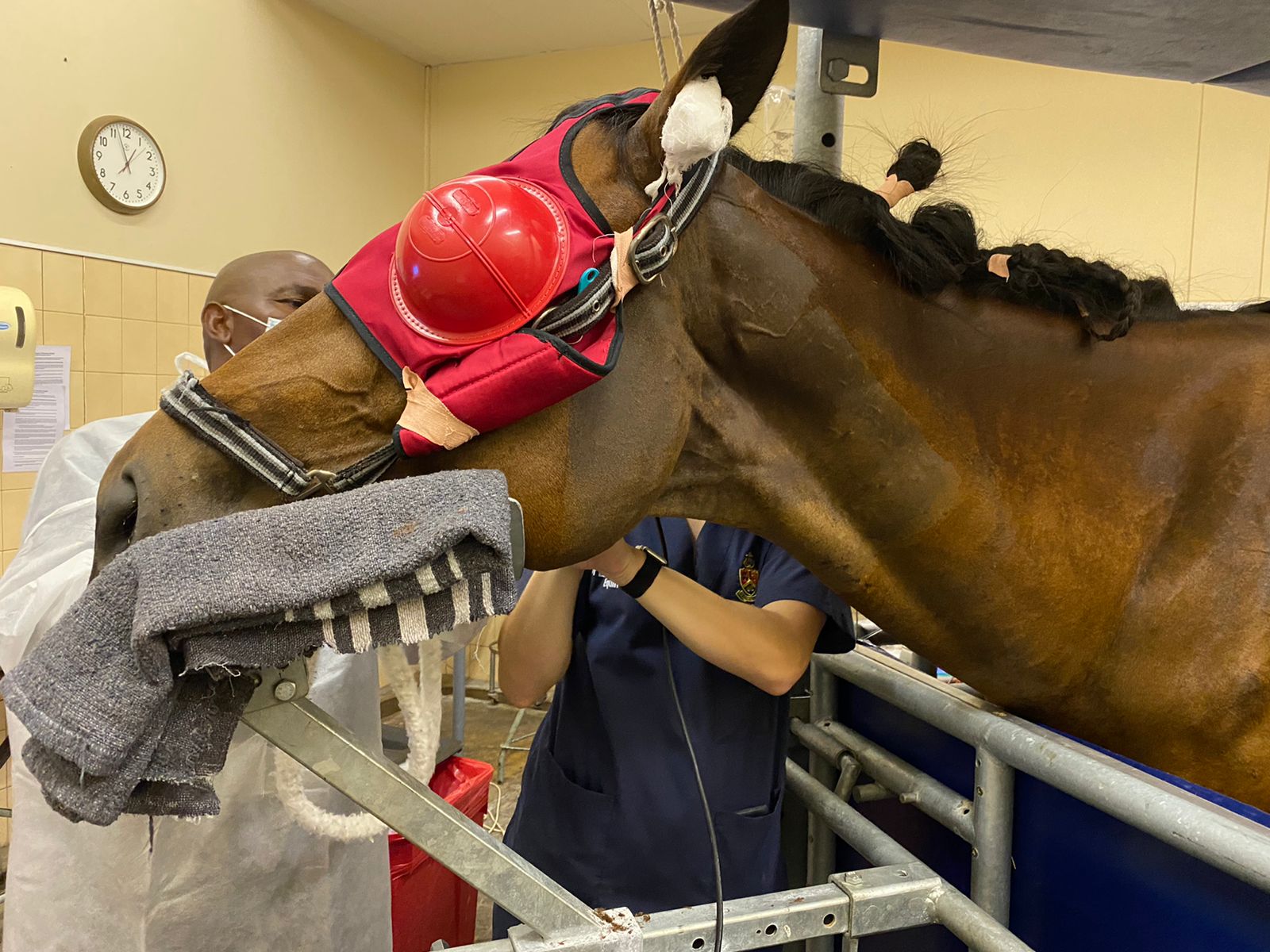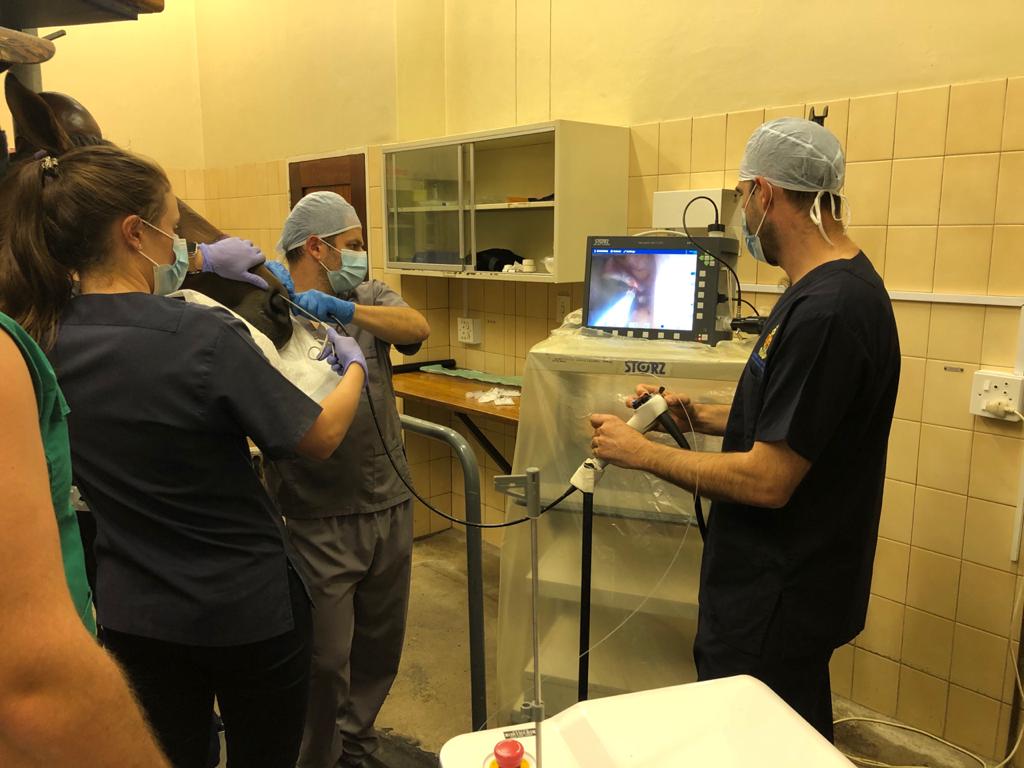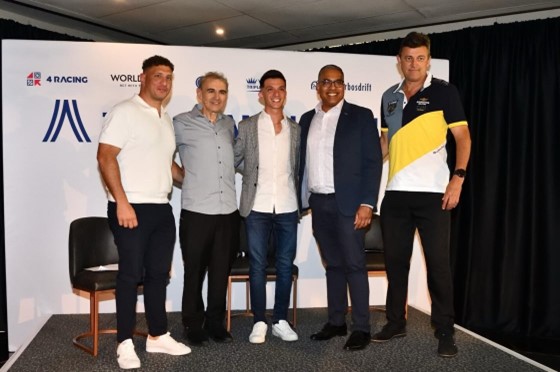This was the first case of laryngeal hemiplegia treated in this way in South Africa and could well be the first in Africa too!
The Citizen reports that a veterinary specialist from the University of Pretoria (UP) has performed groundbreaking surgery on a race horse suffering from laryngeal hemiplegia – a complicated term for upper airway restrictions in horses.

The two-year-old horse being prepped for surgery
The filly’s condition led to decreased airflow into the horse’s lungs from paralysed cartilage.
Horses that suffer from laryngeal hemiplegia are called “roarers”, due to the sound they make while exercising.
If left untreated, horses are unable to exercise and could die of asphyxia.
Luckily, the university’s Dr Juan Muñoz, a senior lecturer in the department of companion animal clinical studies, and Dr Felipe Corrêa, were able to use a new technique to save the horse’s life.
After performing an overground dynamic endoscopy, done by inserting a scope into the horse’s naval cavity, it was found that the horse had a grade 3/4 left side laryngeal hemiplegia.
Surgeons were faced with a few options. Usually, laryngeal hemiplegia patients are treated by laryngoplasty where paralysed cartilage is “tied back” through an incision in the throat latch area, and ventriculocordectomy, which removes the ventricle and vocal cord of the larynx.

Surgeons inserting an endoscope into the horse’s nasal cavity to visualise the pharynx and larynx area
But laryngoplasty can cause chronic coughing or difficulty swallowing, Muñoz explained.
As such, Muñoz and Corrêa opted to treat the horse with “a dynamic neuroprosthesis technique”. A prosthesis with an anchor screw and metallic button was inserted and nerves were used to resupply the horse with lost nerve supply.
The horse remained standing while under sedation, and the entire procedure was performed using laser technology, which meant no direct incisions into the larynx were needed.
The groundbreaking surgery stems from a technique described by Cornell Veterinary School in the US and Grosbois Equine Clinic in France.
Muñoz said this was the first case treated in this way in South Africa, and could well be the first in Africa too.
“The procedure went well and the recovery time will be around three months before the filly returns to racing.”
Head of UP’s companion animal clinical studies department said this is one of many firsts for South Africa in a short space of time.
Life-saving heart surgery was recently performed on two dogs by Dr Adriaan Kitshoff and Dr Ross Elliott, by dilating the opening of a heart valve using a balloon.
Then, Dr Elge Bester and Kitshoff also conducted the country’s first partial knee replacement on a cat.
“This shows that our academics have world-class expertise and are comparable with the world’s best veterinary scientists,” Goddard enthused.
- www.citizen.co.za








